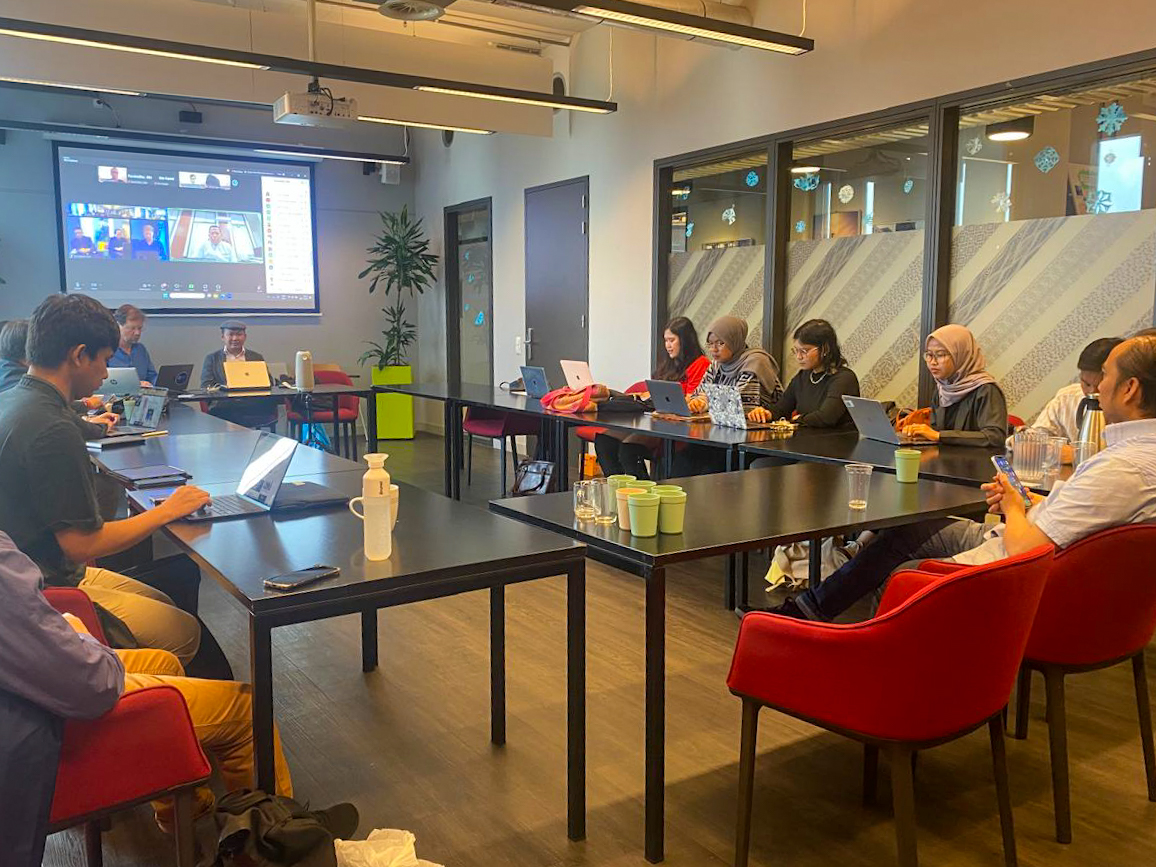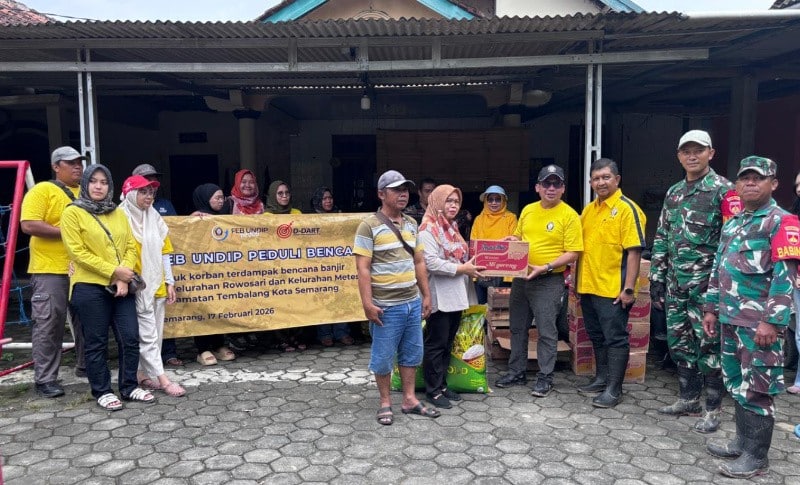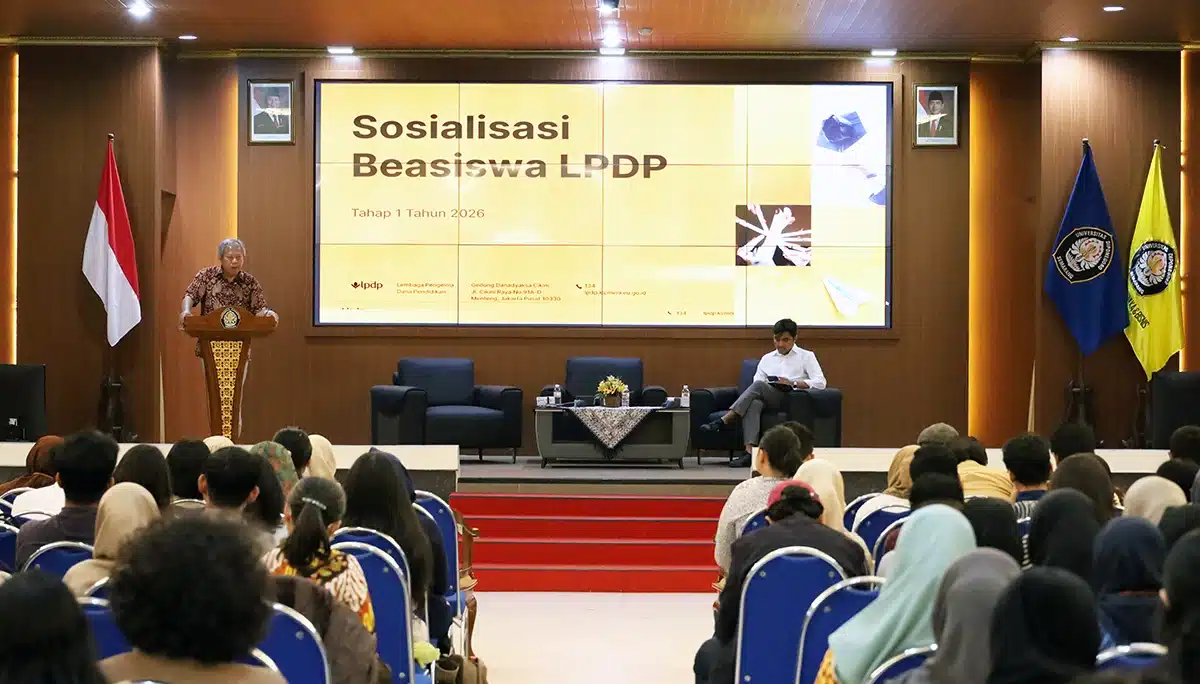The Vice Rector for Cooperation of Diponegoro University, Wijayanto, S.IP., M.Si., Ph.D., delivered a presentation titled “Dynamics of Digital Democracy in Indonesia: State Repression, Social Media Propaganda, and Civil Resistance” at the Democracy School event themed “The Political Economy Challenges of the New Government: Welcoming the Prabowo-Gibran Cabinet.” The Democracy School event coincided with the launching of the UNDIP Journalists and Academics Forum / Jurnalis dan Akademisi (JUARA) on Friday (26/7).
In his presentation, Wijayanto stated that the use of information and communication technology (ICT) can both strengthen and weaken democracy. He highlighted that social propaganda is particularly dangerous because it can create a toxic positivity that obscures reality. Social media propaganda is becoming increasingly widespread, with paid buzzers supporting certain parties through both human accounts and bots. Subtle hoaxes or whitewashing also present new threats that are difficult to prove but effectively conceal facts.
“The internet is good for democracy, but on the other hand, it is also used for propaganda. The digital public space can be used, for example, for citizens to claim their rights or to protest,” he explained.
“In theory, the public space is viewed as a standardized communicative space that is accessible to all citizens and helps to promote the development of public opinion and the formation of political will. These public processes occur through unhindered access to information, ideas, and related debates. In the modern world, most public spaces consist of media, particularly in the form of journalism. Still, face-to-face contexts remain important as this is where discussions and debates among citizens take place. We can easily understand that the internet has offered an expansion of mediation for civil deliberation,” Wijayanto elaborated.
He also noted that there are still many issues in Indonesia that still need to be adequately addressed, such as the revision of the ITE Law, which was supposed to address the problems of repression against activists. However, revision is still needed to resolve these issues, and the same problems remain. (LW-Public Relations)










